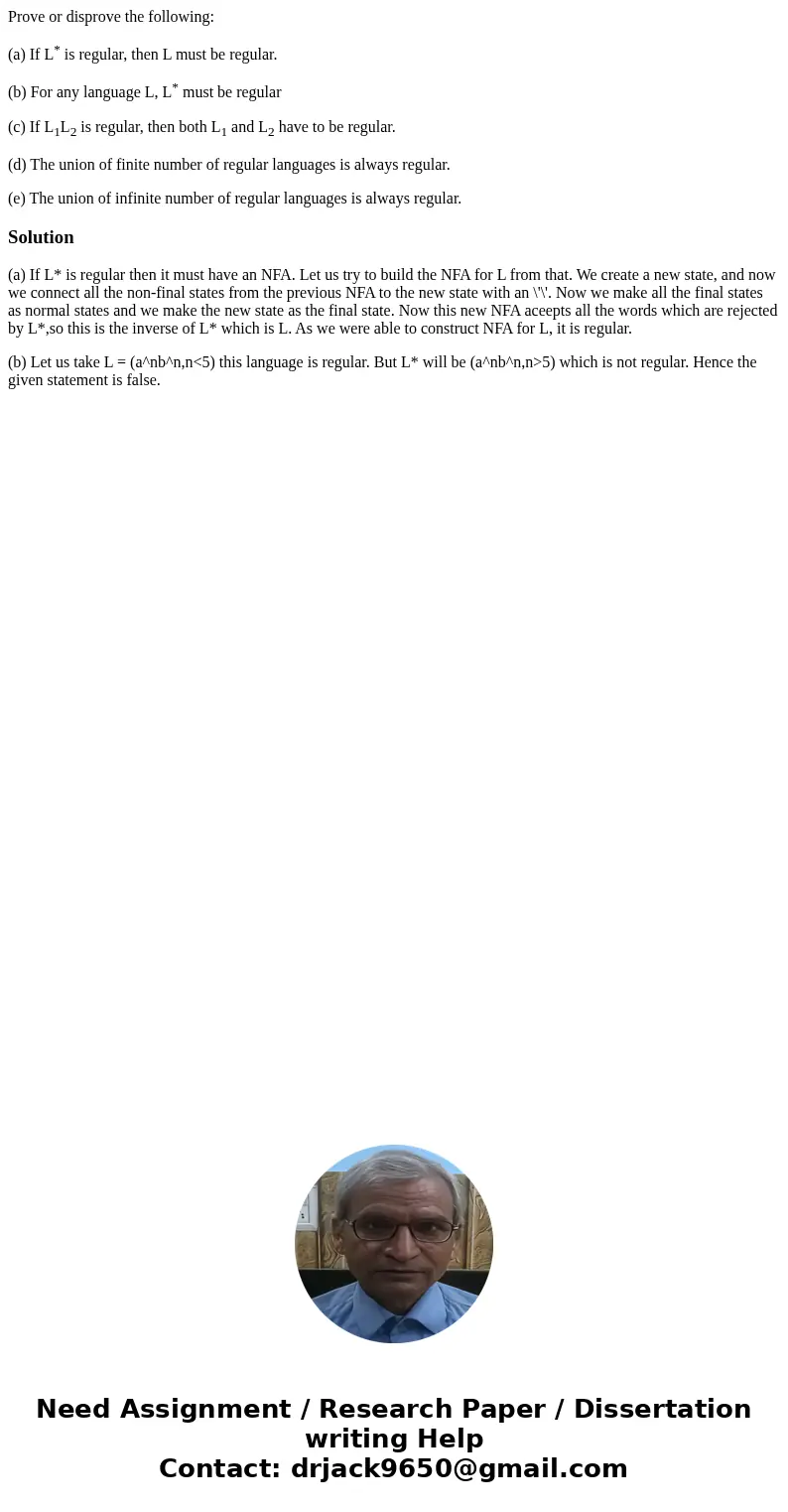Prove or disprove the following a If L is regular then L mus
Prove or disprove the following:
(a) If L* is regular, then L must be regular.
(b) For any language L, L* must be regular
(c) If L1L2 is regular, then both L1 and L2 have to be regular.
(d) The union of finite number of regular languages is always regular.
(e) The union of infinite number of regular languages is always regular.
Solution
(a) If L* is regular then it must have an NFA. Let us try to build the NFA for L from that. We create a new state, and now we connect all the non-final states from the previous NFA to the new state with an \'\'. Now we make all the final states as normal states and we make the new state as the final state. Now this new NFA aceepts all the words which are rejected by L*,so this is the inverse of L* which is L. As we were able to construct NFA for L, it is regular.
(b) Let us take L = (a^nb^n,n<5) this language is regular. But L* will be (a^nb^n,n>5) which is not regular. Hence the given statement is false.

 Homework Sourse
Homework Sourse